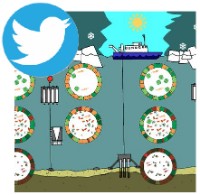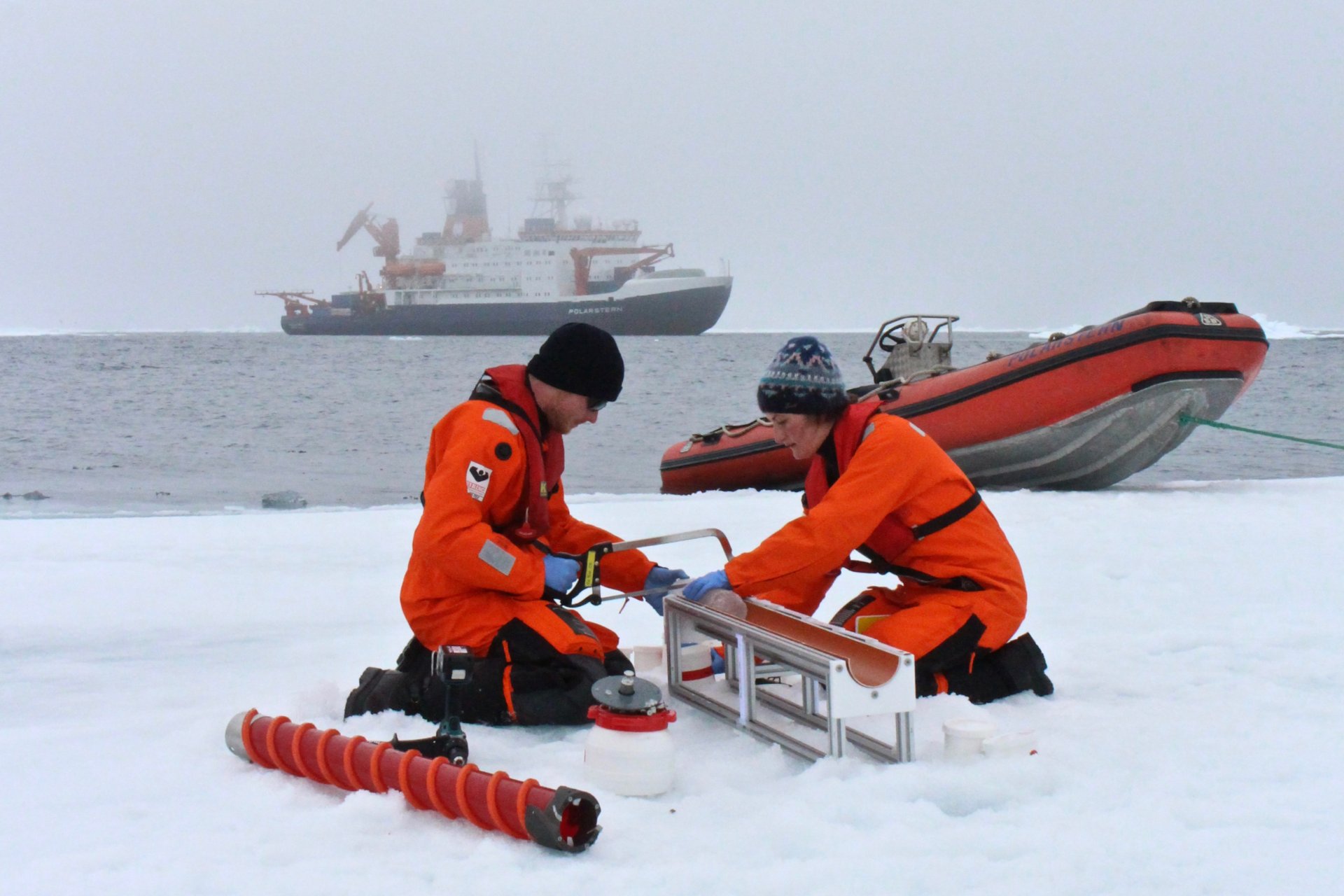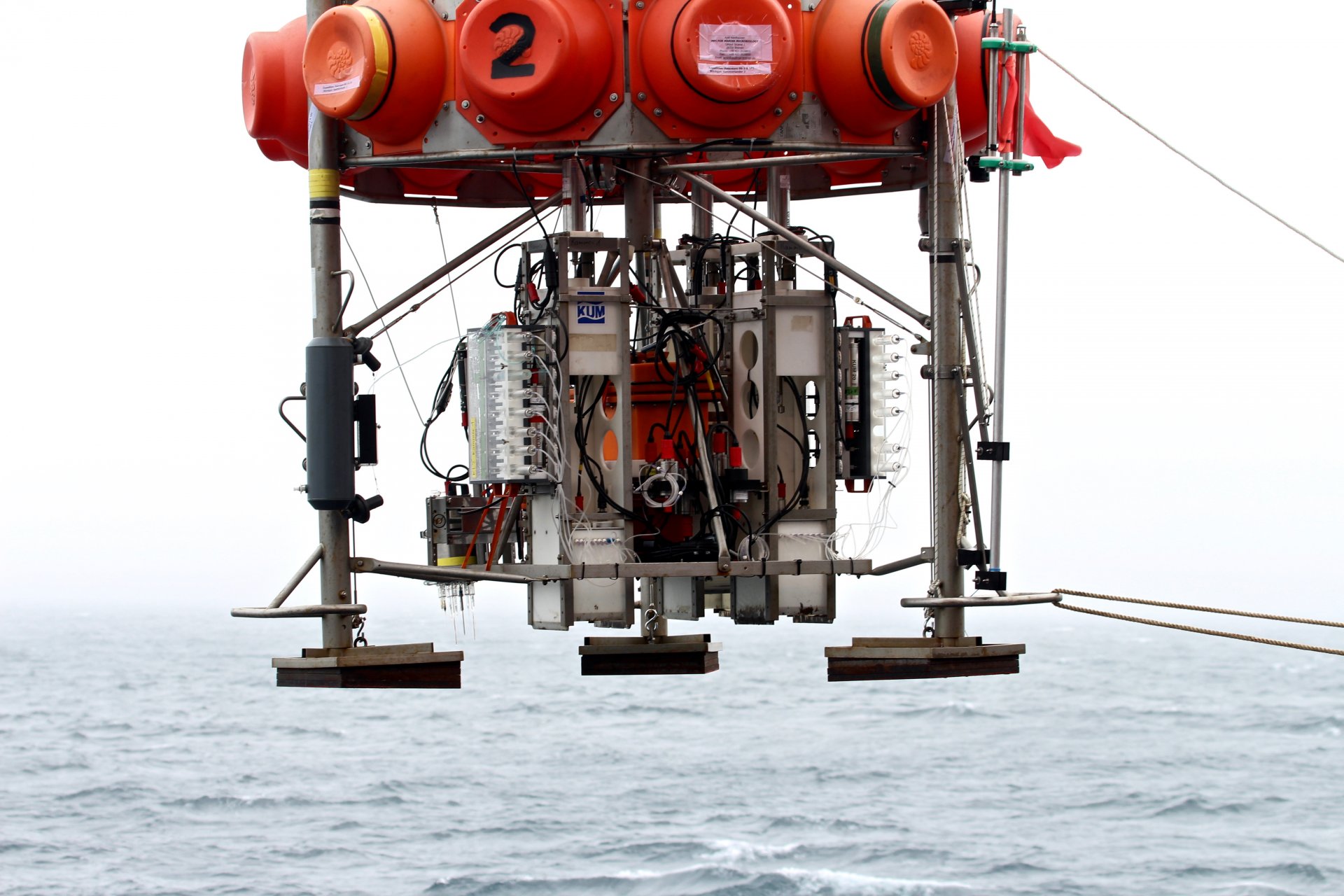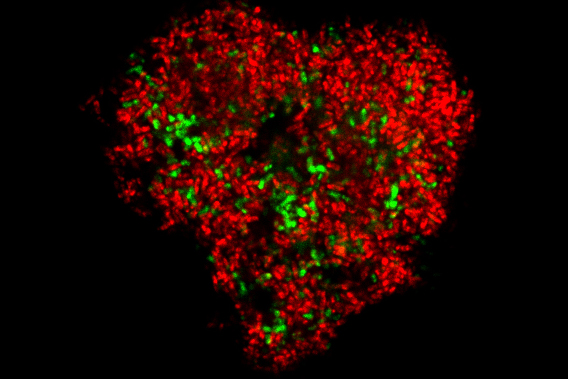- Departments
- HGF MPG Joint Research Group for Deep-Sea Ecology and Technology
HGF MPG Joint Research Group for Deep-Sea Ecology and Technology
Group leader
HGF MPG Joint Research Group for Deep-Sea Ecology and Technology
MPI for Marine Microbiology
Celsiusstr. 1
D-28359 Bremen
Germany
|
Room: |
1337 |
|
Phone: |
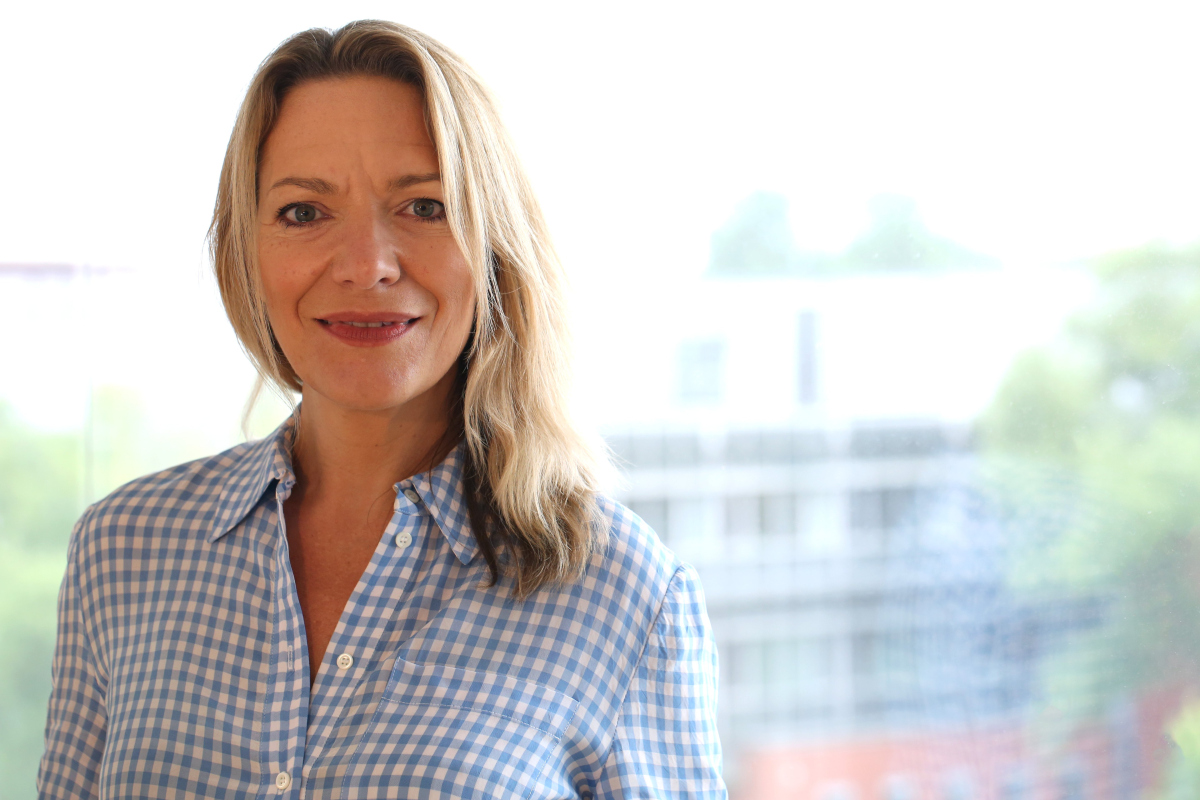
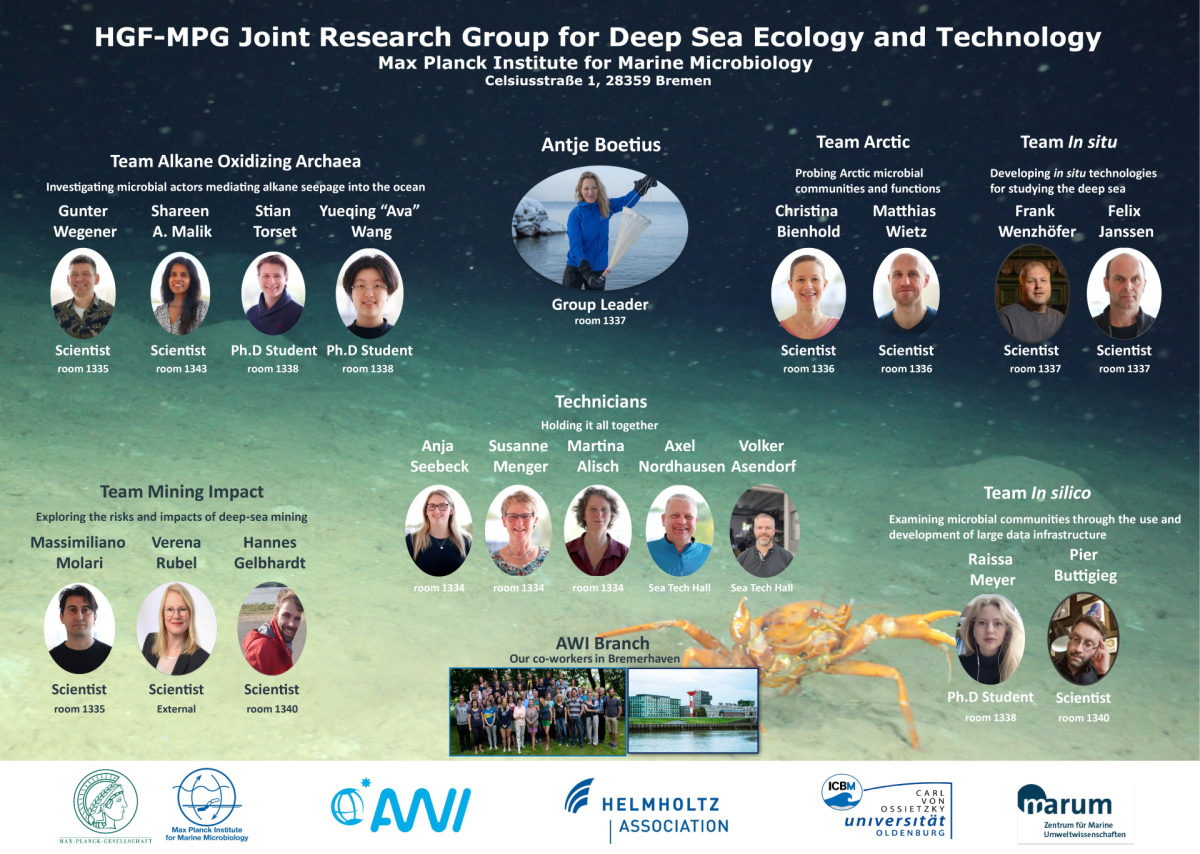
Overview
Since 1.12.2008, the MPI Microbial Habitat group and the AWI Deep-Sea Research group form the Helmholtz - Max Planck Joint Research Group for Deep-Sea Ecology and Technology. Additional information on the work of the group situated at the AWI can be found here.
The microbial habitat describes the physical location and type of environment in which a population of microorganisms live. Hence, this research group studies the physical, chemical, geological hydrological, and biological characteristics of distinct microbial habitats. The goal of our research is to understand structure and change of microbial ecosystems, the formation of niches for microbial populations, and to investigate environmental dynamics and their consequences on the occurrence, biodiversity, and distribution of microbial populations.
The uniting topics to all researchers in the group is to obtain 1) “true” quantitative insight to ecosystem structure, dynamics, and biogeochemical fluxes, based on in situ measurements, and 2) insight into the related variations in microbial biodiversity on relevant spatial and temporal scales. The development of novel instrumentation for in situ studies of submarine ecosystems, ranging from coastal sands, reefs, continental margins, and polar waters to hydrothermal vents, enables us in collaboration with the Microsensor group to improve the quantification of transport and reaction, which are dominant factors structuring microbial habitats.
Furthermore, we link our in situ biogeochemistry and biodiversity studies closely to the investigation of microbial function in the respective habitats, in collaboration with the department of Microbiology and Molecular Ecology.
Outreach
Expeditions
Scientists taking ice cores during a research expedition in the Arctic. Every year, members of our group are going on research expeditions and sampling campaigns around the globe. The destinations range from sandy coastal regions, over warm and cold water corals, to the deep-sea floor at several thousand meters water depth.
Technology
Our in situ technology operated aboard research vessels includes landers (image), multi-corers, sediment traps, plankton nets, and ROVs. Other in situ equipment is permanently situated at sea, usually attached to moorings reaching down the entire water column, and includes diverse sensors to monitor physical and chemical parameters of the ocean, as well as sediment traps catching and preserving sinking biotic and abiotic particles.
Research
Parts of our research focus on thermophilic consortia consist of anaerobic methane-oxidizing Archaea (ANME-1; red) and bacterial partner (HotSeep-1; green). These consortia were sampled and enriched from the Guaymas Basin, Gulf of California. The cells were visualized by CARD-FISH, a standard technique in molecular ecology to identify specific groups of organisms. The micrograph was obtained with a confocal fluorescence laser scanning microscope.
News
Latest publications
David Benito Merino, Julius S Lipp, Guillaume Borrel, Antje Boetius, Gunter Wegener, Anaerobic hexadecane degradation by a thermophilic Hadarchaeon from Guaymas Basin,The ISME Journal, Volume 18, Issue 1, January 2024, wrad004,https://doi.org/10.1093/ismejo/wrad004
Zehnle, H., Laso-Pérez, R., Lipp, J., Riedel, D., Benito Merino, D., Teske, A., Wegener, G. Candidatus Alkanophaga archaea from Guaymas Basin hydrothermal vent sediment oxidize petroleum alkanes.Nat Microbiol8, 1199–1212 (2023). https://doi.org/10.1038/s41564-023-01400-3
Molari, M., Hassenrueck, C., Laso-Pérez,Wegener, G., Offre, P., Scilipoti, S. Boetius, A., A hydrogenotrophic Sulfurimonasis globally abundant in deep-sea oxygen-saturated hydrothermal plumes. Nat Microbiol8, 651–665 (2023). https://doi.org/10.1038/s41564-023-01342-w
Hahn, Laso-Pérez, et al., Wegener (2020) “Candidatus Ethanoperedens,” a Thermophilic Genus of Archaea Mediating the Anaerobic Oxidation of Ethane [link]
Hoffmann et al. (2020) Diversity and metabolism of Woeseiales bacteria, global members of marine sediment communities [link]
Boetius (2019) Global change microbiology - big questions about small life for our future. Nature Reviews Microbiology [link]
Prizes
- Antje Boetius received the International TÜV Rheinland Global Compact Award (2024)
- Antje Boetius received the University Teacher Award by the German Association of University Professors and Lecturers (2022)
- Antje Boetius received received the Carl-Friedrich-von-Weizsäcker-Preis, Nationale Akademie der Wissenschaften Leopoldina und Stifterverband
- Antje Boetius received theUrania-Medaille (2020)
- Antje Boetius received theRobert and Bettie Cody Prize for Marine Research (2019)
- Antje Boetius received theLeibniz Ring-Hannover (2019)
- Antje Boetius received and theFederal Cross of Merit (2019)
- Rafael Laso Pérez received the Otto-Hahn-Medaille (2020)
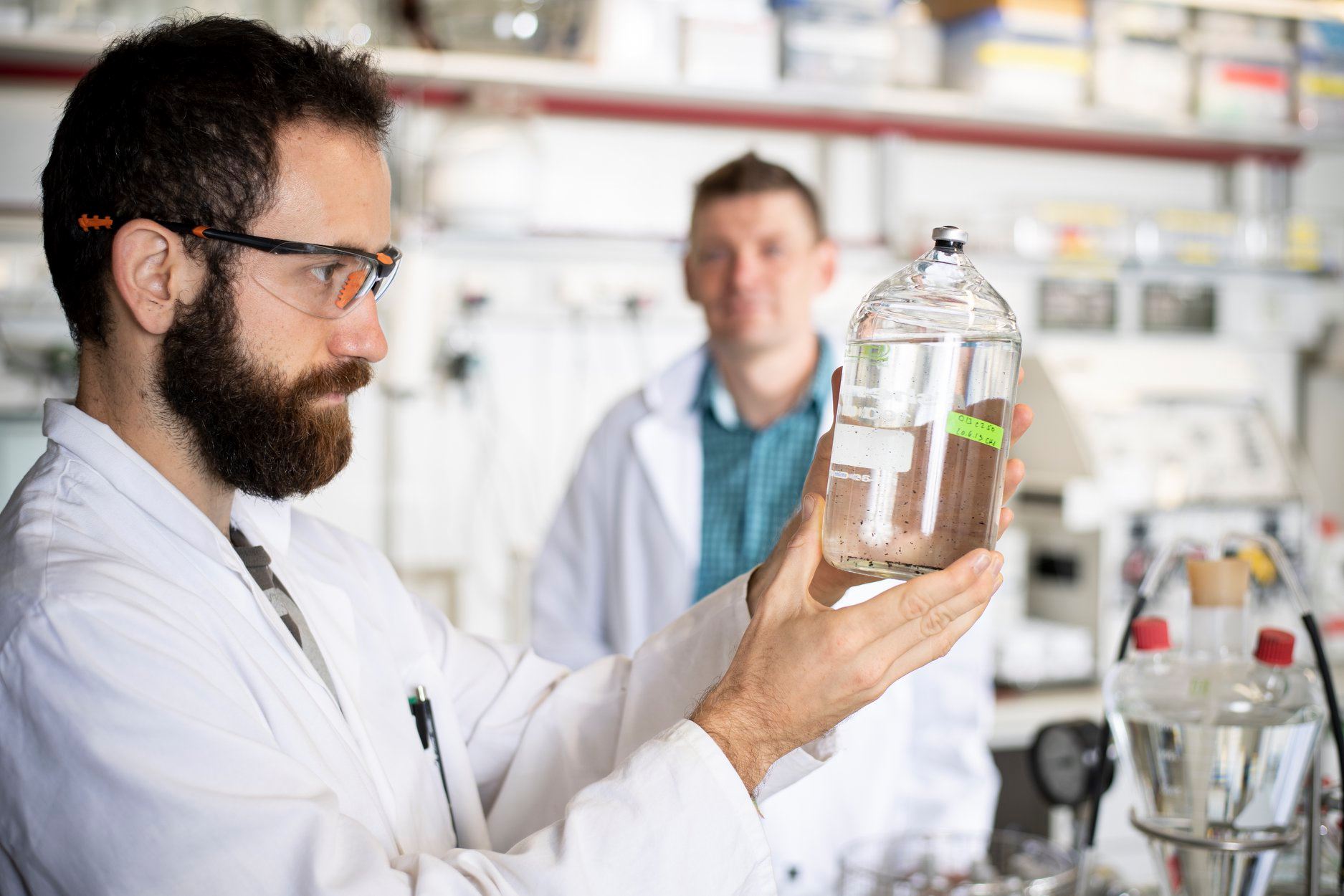
For his outstanding scientific work on the role of archaea in the degradation of non-methane hydrocarbons, MPI researcher Dr. Rafael Laso Pérez is awarded the Otto Hahn Medal of the Max Planck Society.
